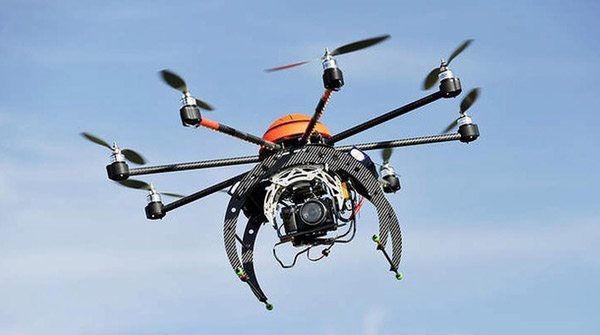The Competition Commission of India (CCI) on July 6 ruled that biscuit manufacturer Parle did not violate any competition laws by refusing to sell its products directly to Udaan. The Business-to-Business (B2B) e-commerce marketplace wanted to buy the popular Parle-G biscuits directly from Parle and not from distributors, but Parle refused, following which Udaan approached CCI arguing Parle’s conduct is anti-competitive.
“The Commission is of the prima facie view that, in the present case, the Informant [Udaan] has not been able to demonstrate any exclusionary practice on behalf of Parle within the purview of the [Competition] Act, which may hinder the development of a competing supply chain for the products of Parle. Thus, the Commission is of the opinion that there exists no prima facie case of contravention of the provisions of Sections 3(4) and Section 4 of the Act against Parle, and therefore, the matter be closed.” — CCI
Why does this matter? Distributors have been some of the most adversely affected by the growth of e-commerce as platforms prefer to directly engage with manufacturers for procurement of goods, cutting the middlemen out. As a result, distributor bodies have had frequent run-ins with manufacturers demanding that they are not bypassed. However, e-commerce platforms have argued that consumers benefit from their practice as they can find products at a lower price and that the Competition Act disallows manufacturers from refusing to deal with downstream players. Against this backdrop, the CCI order offers some reprieve to distributors by establishing that manufacturers can choose to not directly deal with e-commerce platforms.
Never miss out on important developments in tech policy, whether in India or across the world. Sign up for our morning newsletter, with a “Free Read of the Day”, to experience MediaNama in a whole new way.
Arguments presented to CCI and CCI’s analysis
Relevant market and dominant position
Udaan: The e-commerce platform submitted that the relevant market is the “market for glucose biscuits in India” and that Parle commands approximately 83% of this market. “Parle, through its brand Parle-G, has substantial market power and dominance, which it is abusing by refusing to supply to the Informant, and therefore, the conduct of Parle needs to be investigated,” Udaan alleged. The e-commerce marketplace also submitted that Parle-G is a must-stock item on the platform and that these biscuits are akin to “essential.” For these reasons, it is necessary to secure direct access to procure the same, Udaan claimed.
Parle: Parle stated that such a narrow market of glucose biscuits cannot be delineated and that the relevant market should be the “market for biscuits in India” and even at the narrowest level could be only “market for sweet biscuits in India.” And in these two markets, Parle submitted data to CCI to argue that it holds no market power, let alone dominance. Without dominance there can be no abuse of dominance, Parle pointed out.
CCI: The regulator relied upon the judgements passed in an earlier case involving Hiveloop Technology Pvt. Ltd. (Udaan) and Britannia, in which it deemed that a narrow segmentation is not warranted. “Broadly, as per the material available on record, Parle has a market share of approximately 27% in the overall biscuits category, and it cannot be said that it does not have market power. But the existence of other big competitors like Britannia, ITC, Cremica, Patanjali, etc. who also offer products similar to Parle, do pose competitive restraints on it,” CCI analysed. As for the “must-stock item” argument, the Commission said that it is not inclined to agree with Udaan “that one brand’s biscuits are ‘must stock’ or so indispensable that not directly dealing with Parle would pose an existential threat to the Informant in the biscuits market.” Given these, CCI noted that there is no merits for the abuse of dominance allegation made by Udaan under Section 4 of the Competition Act.
Refusal to deal and exclusive distribution agreements in violation of Section 3(4) of the Competition Act
Udaan: The marketplace submitted that Parle has refused to supply its Parle-G biscuits and has spurned all advances made by Udaan seeking a relationship with it. Furthermore, Udaan alleged that Parle has threatened its distributors to not supply these biscuits to Udaan and provided an instance where Parle terminated the distributorship of one of its agencies in UP which was found to be dealing with Udaan. “Parle has a special responsibility to deal with the downstream player, whereas Parle’s conduct shows an exclusionary approach,” Udaan said. Udaan submitted that this conduct is anti-competitive and in violation of Sections 3(4) of the Act, which lists “refusal to deal” and “exclusive distribution agreements” as anti-competitive agreements.
Parle: The biscuit manufacturer asserted its right of choice to deal with any business entity as per its own requirement and not merely on the asking. Parle also denied the existence of any agreement between itself and its distributors within the meaning of Section 3(4) of the Act. Parle said that Udaan is free to obtain its products from the open market and it does not place any embargo on its distributors on dealing with the marketplace.
CCI:
- Parle is under no obligation to deal with Udaan or treat it as equally as distributors: “The Commission tends to agree with the submission of Parle in the facts and circumstances of the case that it is under no absolute obligation to deal with the Informant. Against this background, the averment that the Informant is not offered terms of trade that are pari materia to that offered by Parle to its other distributors pales into insignificance, in as much as the Informant has not been able to establish a business relationship with Parle in the first place. The obligation to treat equally arises amongst parties that are equally placed. An entity which is yet to be accepted as a trading partner either expressly or impliedly may not be entitled to claim a same or similar right as available to an existing distributor. Further, even amongst distributors, it may not be out of place to subject them to different terms of trade when the same is stated to be based on sound commercial logic and not in derogation of any governing laws, and therefore, equal treatment is not any bounden obligation cast in iron and stone,” CCI stated. With regard to the contention of Parle that it has the freedom to choose its business partners, the Commission agreed with Parle citing the Britannia case as precedent.
- Nothing credible to suggest Udaan cannot deal with Parle products: “There is nothing credible on record to suggest that the Informant is not able to deal in Parle’s products till date. Even if it were to be assumed for a moment that Parle has placed active vertical restraint on one of its distributors not to deal with the Informant, no retailer or end consumer appears to have been affected. In this regard, the Commission notes the averment contained in the Information, that 115 out of 235 vendors from whom retailers of Udaan can purchase on its platform are Parle’s distributors,” CCI observed. “In any case, with the existence of distribution network of Parle pan-India, there does not seem to arise any limitation, restriction, or withholding of output in the supply of goods. Even otherwise, alleged non-fulfilment of demand for Parle’s products on the platform of the Informant cannot be taken as non-fulfilment of the demand in the market as a whole,” CCI added.
- Don’t play hide and seek with facts: Udaan cited an instance whereby Parle prevented one of its distributors from dealing with the marketplace. “This fact, however, remains unsubstantiated in the absence of Parle not having had a chance to respond, due to the Informant’s reticence in placing facts on record at the opportune time,” CCI said. The said incident reportedly took place in Varanasi on 17.07.2021, which was before Udaan filed the original complaint. “If, according to the Informant, these facts were relevant for the attention of the Commission, that should have been brought before the Commission at the earliest available opportunity. The Informant chose to place reliance on the same post-filing of the reply by Parle, and the Commission at this stage does not have the benefit of the submissions of Parle on this aspect. The Commission expresses its displeasure on the conduct of the parties, who play hide and seek with facts and adopt a truant approach,” CCI noted.
Detrimental to business interests
Udaan: Udaan contended that “retailers receive null searches for Parle-G biscuits on its platform, which has the potential to drive those retailers away from the platform and ultimately prove detrimental to the business interest of the Informant, which may have to close shop.”
Parle: Parle submitted that it “has evolved over the years for appointment of distributors to deal with its products pan-India and has affirmed that it does not appoint any sundry entity that do not fulfil such criteria. In the eyes of Parle, the Informant does not satisfy such criteria, and it has expressed its uneasiness with the business model of the Informant, which Parle thinks is unviable and incompatible with its own model.” The biscuit manufacturer further explained that the services provided by its brick-and-mortar distributors cannot be effectively provided by Udaan, which follows a business model that involves accumulating massive debts. Parle submitted that it desires distributors who are capable of surviving in the long run and also expressed some concern over the lack of genuineness of products sold on Udaan.
CCI: “The Commission in this regard observes that the type and nature of distributors a manufacturer desires to partner with is an essential part of the autonomy of its business, and the Commission cannot ipso facto substitute its regulatory wisdom to that of the commercial wisdom of the businesses, unless the commercial wisdom is palpably in the face of the provisions of the Act, and the criteria laid down are ex facie unfair and/or discriminatory and designed with a view to exclude/eliminate competition on merits,” CCI note, siding with Parle.
Adverse effects on competition
Udaan: The marketplace argued that Parle’s conduct does not promote any technical, scientific, and economic development and innovation in the market and prevents the accrual of benefits to customers, all of which constitute appreciable adverse effects on competition (AAEC) as defined under Section 19(3) of the Competition Act.
CCI: CCI disagreed with Udaan’s allegations stating that neither intra-brand nor inter-brand competition appears to be affected so as to cause or likely cause any AAEC in the market. “In the present case, the overall competition is not getting or likely to get adversely affected in any of the markets at this stage. Further, it may also not be reasonable to assume that technological innovation and disruptive technology are introduced only by the Informant, as a similar model has been deployed by others as well. The Commission observes from the public domain that there is the presence of players like JioMart Partner, Arzooo, Flipkart Wholesale, Amazon Business, and other competitors in the online B2B segment. The Commission further noted “that there are apparently no barriers to entry either in the manufacturers’ market or in the distributors’ market, considering the presence of a large number of biscuit manufacturers (including foreign entrants in recent years) in the upstream as well as the presence of Parle’s distributors in the downstream market. Moreover, there appears to be no existential threat or foreclosure as regards the Informant, considering that the Informant is an online B2B platform catering to multiple product segments pan-India and is not significantly dependent on Parle’s products.” Further, the Commission reiterates its decision in the Britannia case, where it has been stated that:
“The Commission is mindful that a large distribution network provides more choices to retailers and consumers, but it cannot stretch this concept too far to support establishment and survival of every downstream entity in the fold, having regard to the underlying product and the existing conditions in the market. Moreover, selective distribution is an industry practice and one of the business strategies adopted by businesses. This falls within the domain of reasonable autonomy given to any trade participant, which autonomy, however, is not absolute. [….]”
This post is released under a CC-BY-SA 4.0 license. Please feel free to republish on your site, with attribution and a link. Adaptation and rewriting, though allowed, should be true to the original.
Also Read
- Summary: CCI Orders Antitrust Investigation Into Movie Ticketing App BookMyShow
- How The Government Should Amend The Competition Act For The Digital Era, Parliamentary Panel Suggests
- CCI Investigating Financial Dealings Between Amazon, Flipkart And Their Top Sellers
- Deep Dive: Why CCI Is Setting Up A Digital Markets Unit






























